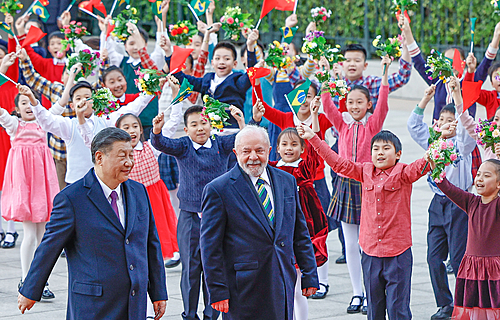
Brazil’s exports to China, in 2023, could reach the historic value of US$ 100 billion (almost R$ 500 billion), an unprecedented amount even taking into account trade with other countries around the world. The data released by journalist Assis Moreira in the Economic value It surprises even the government’s own economic team, which predicted a ceiling of up to US$90 billion in Brazilian remittances to China.
:: Chinese machines for family farming are on their way to the Northeast ::
Last year, exports were US$89.4 billion to the Asian country, which meant 26% of all Brazil’s international sales in 2022.
If sales of almost half a trillion reais are achieved, 30% of all Brazilian trade will be destined for China this year. In 2014, this percentage was 18%.
:: Joe Biden and Xi Jinping meet in San Francisco; military personnel from both countries will resume dialogue ::
In addition to soybeans, ore and oil, the arrival of corn in the business portfolio boosted the commercial relationship between the two countries.
Without the dollar
In October, the Bank of China Brazil announced an unprecedented feat, which was the first complete transaction between a Brazilian company and a Chinese company using only reais and yuan, the local currencies of the two countries, avoiding the exchange rate in dollars.
According to the Chinese financial institution, the operation was carried out between the months of August and September, and was a pulp export business from Eldorado Brasil, a company from São Paulo with representation in Shanghai.
:: Energy transition will be ‘slower than necessary’ in Brazil by 2050, experts say ::
More recently, another unprecedented movement took another step in the rapprochement between China and Brazil. The Asian country sent a batch of agricultural machinery.
Equipment such as micro-tractors, harvesters, seeders and planters will be destined for productive areas of family farming in Ceará, Maranhão, Paraíba and Rio Grande do Norte.
There are around 30 machines that can be used in 20 types of crops in areas that include settlements of the Landless Rural Workers Movement and other family farming organizations, such as the Rural Workers Union of Apodi (RN).
Editing: Rodrigo Durão Coelho
Source: www.brasildefato.com.br

